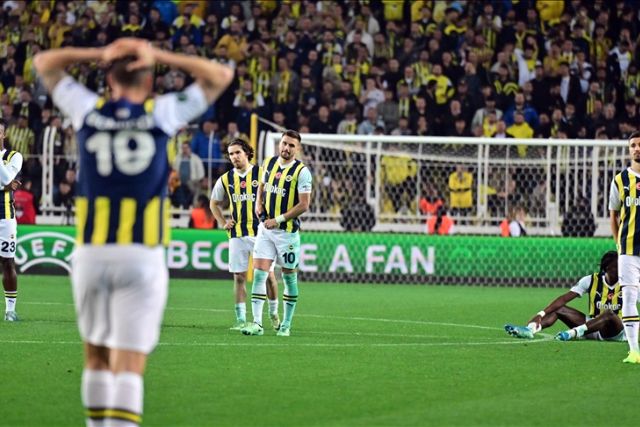'Turkey has always been staunch ally within NATO'
'If you look at broader picture of what Turkey actually contributes to NATO, it has been massive,' says policy analyst

ANKARA
Although there have been some disagreements between Ankara and some NATO members, Turkey remains a reliable and crucial partner in NATO, according to a senior policy analyst.
"There have been some problems, more than a few over the last few years between with some member states of NATO and Turkey that have not seen eye to eye, but my perspective is, Turkey has always been and continues to be a staunch ally within NATO," Amanda Paul, a senior policy analyst at the Brussels-based think tank European Policy Center, said during the conversation, titled Turkey and NATO, and organized by Turkey's Communications Directorate with the participation of experts as part of the NATO summit.
Turkey is at the forefront against "Russian expansionism" in the Black Sea and the Mediterranean, she said, adding that this role is not enough appreciated.
On Turkey's NATO membership, Paul said that there is a need to look at the bigger picture.
"You need to have a more nuanced position, because if you look at the broader picture of what Turkey actually contributes to NATO, not just now but over the decades, it has been massive. For me, Turkey remains reliable partner and a crucial partner," she added.
On the Mediterranean issue, Paul said it is ultimately related to the Cyprus problem, and noted that if the Cyprus problem was resolved, there would be no problems in the Eastern Mediterranean.
Unfortunately, it does not look like this is going to happen, there seems to be a tendency to blame Turkey for the non-resolution of the Cyprus issue but I think we all know, so the people in the UN and elsewhere, that back in 2004, the Annan plan and more recently Crans-Montana (2017 Cyprus talks), you cannot blame the crumbling of these talks on to Turkey," Paul noted.
She went on to say that there needs to be a different approach, for example, more pressure to be put on the Greek Cypriots.
"I think these proposals (on NATO's 2030 agenda) are really taking NATO into a different direction, working on issues that were not there before, whether it is cybersecurity, green security, health security," she added.
'Turkey is key ally, making substantial contributions'
Tacan Ildem, a member of NATO 2030 Experts Group and the former NATO assistant secretary-general, said Turkey is a key ally, making substantial contributions not only to collective defense efforts but also to all operations and missions of NATO.
Reminding that Turkey has assumed the role of leader of NATO's Very High Readiness Joint Task Force as of Jan. 1 this year, Ildem noted that he believes, in the preparatory work for the updating of the strategic concept, Turkey could make a very valuable contribution.
"When we talk about the future of NATO, for Turkey, fighting terrorism is an important issue. Turkey suffered a lot out of terrorism and in our report NATO 2030 we emphasized that it poses an immediate and asymmetric threat to NATO and individual allies," he added.
Ildem said they proposed that since this is a "cross-cutting issue," it needs to be explicitly incorporated in the core tasks of NATO.
"NATO summit meeting, bringing together whole ally heads of states and governments will provide a very good opportunity to reinforce transatlantic bond and solidify the unity, cohesion and solidarity among allies," said Ildem.
He went on to say that the new concept is aiming to prepare NATO for 2030 and beyond, for a world with a "more unpredictable and more contested nature" and a world with geostrategic and systemic competitions.
"Now when we look at the international security environment, it is becoming more complex, with different kinds of threats and challenges, as the leaders agreed and reiterated in London 2019, Russia and terrorism will remain the main source of threat for the foreseeable future," Ildem noted.
However, he said, while in the past it was easy to make a distinction between peace time and crisis and conflict, but now with the hybrid threat, and we can include systematic cyber-attacks, disinformation campaigns to be something that pose serious challenges to democratic societies of allied nations.
"Therefore NATO needs to sharpen its capacity in dealing with resilience. Resilience has become a keyword in our time with complex security issues," he noted.
He underlined that there are also other domains like the security implications of climate change and this would need to be addressed in the strategic concept.
"Certainly there are some differences among the allies, it has been the case in the past, these differences exist now and it will remain in the future, but the most crucial thing is for allies, to resolve these differences, with mutual understanding and mutual respect," Ildem concluded.





